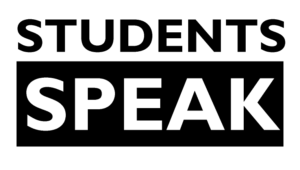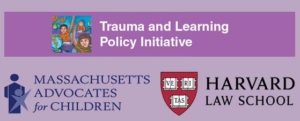Kellin
Hi, my name is Kellin and I’m a junior. I’d like to talk about my experience of coming out as a trans student in school.
When I first realized I was transgender I was surrounded by classmates that had just made it very clear they didn’t accept trans people. I was in fifth grade, I was eleven years old, and the hot topic at lunch was Caitlyn Jenner coming out as trans. It was my first time hearing about it and I remember thinking to myself, “so I don’t have to be a girl?” Immediately something in me clicked, but I decided not to tell anyone because of the negative things my classmates had been saying, like how they saw being transgender as “wrong” or even “impossible”. Their reactions made me confused so I did my own research online to try and better understand myself. For a couple of years, only my two closest friends knew that I was trans but I eventually came out in eighth grade, and just like I feared, many of my peers thought that my transitioning was wrong, or that I was a freak.
I learned pretty quickly that I had to build a wall around myself and that I couldn’t let my peers see when they were getting to me. I put a lot of energy and effort into not caring and my grades suffered a lot. It was really hard to keep pushing those feelings down, so sometimes they’d just come bubbling back up. I was seeing a therapist, and working hard to improve my mental health, but it became a cycle where I felt I had to choose between my well-being and my academics.
Going into high school I had more friends who were either also LGBTQ or allies, but talking about LGBTQ topics and issues at school still felt really taboo, and I started noticing a lot of people who would freely use slurs, especially the f slur.
During freshman year, though, I had a project in one of my classes to make a TED talk and I decided to do it on the effect of transphobia on trans kids. I was terrified of what people might say to me about it, but I actually got a great reaction. A few of my peers messaged me afterwards and said they had learned a lot, and one told me I had changed his viewpoint on LGBTQ people in general. It was really nice knowing that I had made a difference, and I was proud of myself for going out of my comfort zone.
Looking back at my TED talk project, it was such a simple thing to do. If kids were taught about LGBTQ topics it wouldn’t feel so taboo and uncomfortable to talk about, and people would be better informed about the issues that the LGBTQ community faces. Most of the discrimination I’ve experienced was because people didn’t understand what it means to be transgender and why the things they were saying were so damaging. The anxiety that comes from that, from never knowing when I’ll need to explain myself or defend myself, makes school really hard for LGBTQ kids like me. A cisgender boy doesn’t have to explain why he uses the men’s room, so why should I?
If schools teach inclusively about gender and sexuality this burden will be lifted off trans kids’ shoulders. A sex education curriculum that’s more inclusive of gender and sexuality topics will educate all students, and make sure queer kids feel more safe. It’s also important that teachers and staff at schools are trained and know how to help LGBTQ kids. Something as simple as changing a name on a roster for a trans kid or talking about LGBTQ literature and history in class makes school safer and more welcoming. Trans kids shouldn’t be scared to go to school, and they shouldn’t have to be put under more stress feeling like they need to educate their peers. Thank you. 🙂
“The anxiety that comes from never knowing when I’ll need to explain myself or defend myself makes school really hard for LGBTQ kids like me. A cisgender boy doesn’t have to explain why he uses the men’s room, so why should I?” —Kellin
“Something as simple as changing a name on a roster for a trans kid or talking about LGBTQ literature and history in class makes school safer and more welcoming.” —Kellin


